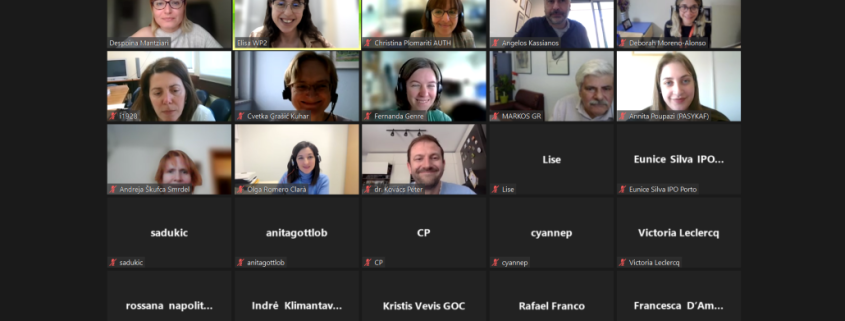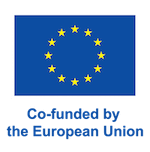eCAN participants meet to learn how to engage patients and professionals in research projects
A total of 29 participants have joined the first eCAN’s internal workshop on improving stakeholders’ engagement in research projects. This event had the aim of sharing practical strategies for coordinating and performing effective patient and healthcare professionals’ recruitment and engagement, based on Patient and Public Involvement (PPI) principles and previous experience in working in Research and Innovation initiatives with cancer patients and healthcare workforce.
The Lab of Medical Physics and Digital Innovation at Aristotle University of Thessaloniki (AUTH), one of the work package 8 members, organised and led the online workshop. The Lab’s research associate and eCAN member Despoina Mantziari has started presenting the preliminary results from the Stakeholders Mapping survey that WP8 developed in order to identify relevant stakeholders for this Joint Action.
Preliminary survey’s results show different levels and types of involvement among stakeholders. WP8 has identified some strengths and barriers related to the formation of a sustainable and inclusive community of multiple stakeholders for the eCAN project. While policymakers and the scientific community are usually engaged in most parts of the process, citizens and healthcare professionals’ collaboration is not as frequent and active as it should be.
In this regard, Mantziari has highlighted how important is to recruit citizens for testing and validating research activities. She has explained some of the key elements that professionals should keep in mind when it comes to engage patients. Open communication, transparency and being specific about the research needs and the patient’ role is essential to cultivate trust.
Since sixteen different countries participate in this Joint Action, participants need to consider the cultural and socio-economic situation of each territory. Diverse realities may affect the engagement level in different ways, therefore all tips and strategies for involving stakeholders should be adapted to the context in which they are developed.
Next workshops
Apart from patients’ involvement, Mantiziari remarked how important is to keep professionals motivated and engaged. Their background and expertise are crucial to build trust with patients and for the success of the project. This workshop will be followed by three more sessions. Next 28th of April, the Lab will hold a workshop on ‘Collaboration with policymaking actors: How to maximise the impact of your work’. In that session, WP8 will explain the importance of getting policymakers involved in a research project such as eCAN.
Later on, the team will organise two more events: ‘Liaison with EU-wide networks: Spread the message across the EU’ and ‘Empowerment Tips&Tricks: Rights and coping frames’. Both will offer a broader view on how to understand and approach stakeholders’ engagement.
![]() Co-funded by the European Union. Views and opinions expressed are however those of the author(s) only and do not necessarily reflect those of the European Union or HaDEA. Neither the European Union nor the granting authority can be held responsible for them.
Co-funded by the European Union. Views and opinions expressed are however those of the author(s) only and do not necessarily reflect those of the European Union or HaDEA. Neither the European Union nor the granting authority can be held responsible for them.





